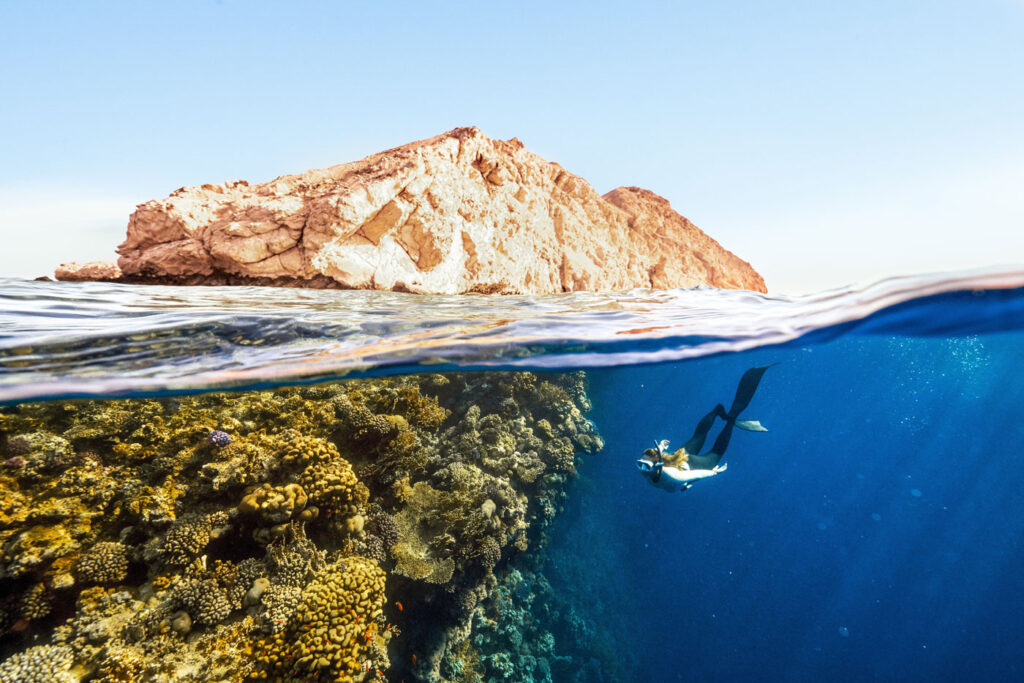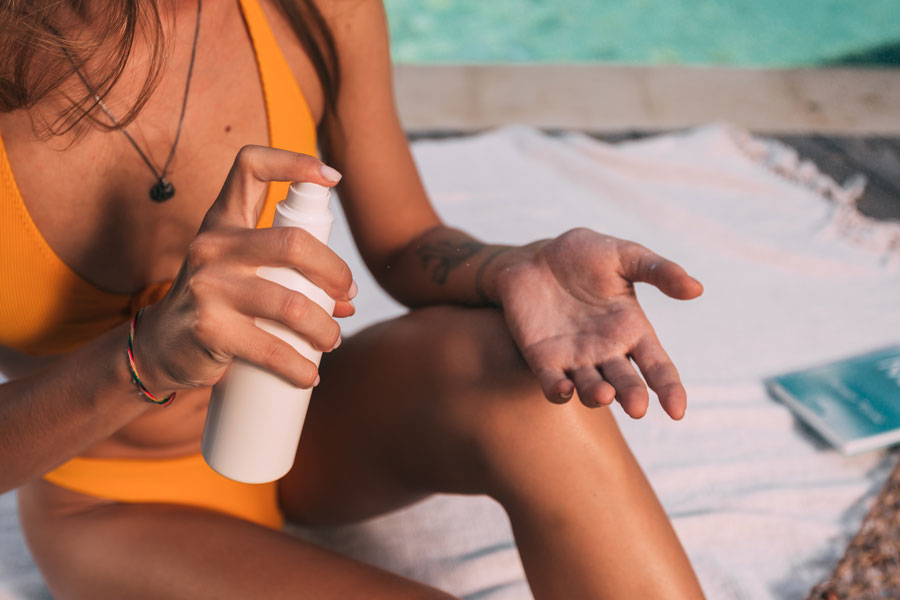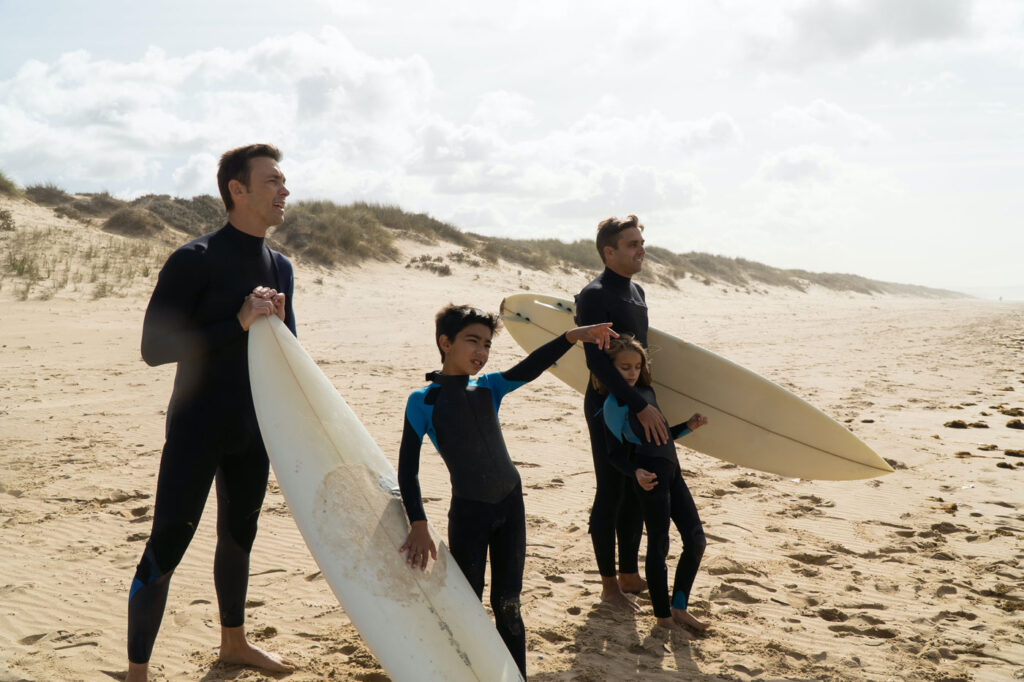Coral reefs stand as some of the planet’s most breathtaking and diverse ecosystems, yet they remain incredibly delicate and susceptible to various threats. Predictions from scientists paint a grim picture, anticipating that by 2050, all coral reefs will be classified as “threatened.” Beyond issues like overfishing, pollution, and climate change, an unexpected contributor to this crisis is sunscreen.
Sunscreen’s Threat to Coral Reefs
Unbeknownst to many, certain sunscreen ingredients pose a significant danger to coral reefs. The scope of this issue is alarming, with an estimated 14,000 tons of sunscreen finding its way into the oceans each year. The good news is addressing this concern is relatively simple. By understanding which ingredients to avoid and seeking alternatives, we can play our part in safeguarding these vital ecosystems.
The harmful effects of these sunscreen ingredients extend beyond coral reefs, jeopardizing various marine organisms such as fish, dolphins, green algae, and sea urchins. Deformities, reduced fertility, and hindered growth are among the issues observed, some of which even pose risks to human health.
Nonetheless, safeguarding our skin remains paramount, given the dangers posed by UV radiation.

Check the Ingredients
The initial step toward choosing reef-safe sunscreen is to scrutinize its active ingredients. Brands that label their products as “reef-safe” or “reef-friendly” cannot be solely relied upon due to the absence of government regulations and mandatory testing for reef impact.
Ingredients to avoid
The top two ingredients to steer clear of are…
Oxybenzone
Octinoxate
And the following ingredients can disrupt coral reproductive cycles, damage DNA, and exacerbate coral bleaching:
Benzophenone-1
Benzophenone-8
OD-PABA
4-Methylbenzylidene camphor
3-Benzylidene camphor
Octocrylene
This is an opportunity for people to do something simple to help save coral reefs. Studies have shown that chemical sunscreen is toxic and has significant impacts to coral health and their reproduction. By using reef safe sunscreen, you are taking part in protecting the reef into the future.
Erica Perez, CORAL’s Senior Program Manager in Hawai’i
The solution lies in biodegradable, mineral-based sunscreens, with non-nano Titanium Dioxide or Zinc Oxide as preferred active ingredients. The term “non-nano” signifies particles larger than 100 nanometers, making them safer for marine life compared to “nano” particles, which are smaller than 100 nanometers.

Buy the Right Sunscreen Brand
Several sunscreen brands are paying attention and getting it right. Those listed below offer products meeting the criteria of being reef-safe and environmentally friendly, and not just by putting a badge on their packaging.
For your next sunscreen purchase, remember to keep it reef-friendly by reaching for these brands:
- Project Reef – Project Reef prioritizes environmentally friendly ingredients, ensuring it does not harm marine ecosystems. Additionally, their products are dermatologist-tested, providing effective sun protection without compromising skin health.
- FlexPower Health – FlexPower Health’s reef-safe sunscreen is a standout choice, providing superior sun protection while using eco-friendly ingredients that safeguard marine life and coral reefs. This commitment to environmental responsibility makes it a conscientious and reliable option for sun protection enthusiasts.
- Babo Botanicals – Babo Botanicals uses organic, plant-based ingredients that are cruelty-free and dermatologist tested. They feature clean, sustainably-sourced ingredients, making this an excellent choice for protecting your skin and ocean life.
- Raw Elements – Raw Elements offers sunscreens with non-nano Zinc Oxide. They are committed to sustainability and reef protection.
- Badger – Badger is known for its range of mineral-based sunscreens that use non-nano Zinc Oxide as the active ingredient. Their products are biodegradable and free from harmful chemicals.
- All Good – All Good offers mineral sunscreens with non-nano Zinc Oxide and Titanium Dioxide. They focus on eco-friendly and reef-safe formulations.
- Stream2Sea – Stream2Sea specializes in biodegradable sunscreens that are safe for both your skin and marine life. They provide a variety of mineral-based options.
- Thinksport – Thinksport produces mineral sunscreens that avoid harmful chemicals and nano-sized particles. Their formulations are designed with environmental safety in mind.
- Alba Botanica – Alba Botanica has a mineral-based sunscreen line that includes non-nano Zinc Oxide. They strive for natural and eco-conscious products.
- Coola – Coola offers mineral sunscreens with non-nano Zinc Oxide and Titanium Dioxide. They focus on organic and sustainable ingredients.
Keep in mind that sunscreen formulations can change, so it’s a good idea to double-check the ingredients before purchasing. Look for non-nano Zinc Oxide or Titanium Dioxide as the active ingredients.
Minimize Sunscreen Usage
Wearing protective clothing like rash guards provides effective shielding from harmful rays, reducing our reliance on sunscreen. This choice not only benefits our skin but also lessens the environmental impact of sunscreen disposal. Furthermore, embracing “reef-safe” habits extends beyond the beach. Sunscreen residue can find its way into oceans through waterways and showers, underlining the need for responsible practices even beyond sandy shores.
By choosing an alternative to sunscreen, we contribute to a broader movement that harmonizes our well-being with environmental preservation. As we make these mindful choices, we collectively create a ripple effect that resonates far beyond ourselves, nurturing a world where personal comfort aligns seamlessly with the protection of our precious ecosystems.

Take Action for Coral Reefs
Beyond sunscreen, human intervention is the key to revitalizing coral reefs. Picking up beach litter, reducing plastic consumption, adhering to responsible diving and snorkeling practices, supporting legislation for climate solutions, and contributing to worthy causes are all avenues through which we can protect and preserve these invaluable coral ecosystems.
Dr. Helen Fox, CORAL’s Conservation Science Director, emphasizes that omitting harmful sunscreen ingredients is just one aspect of the larger puzzle in coral reef conservation. A multifaceted approach is necessary. By continually educating ourselves and taking meaningful actions, we enhance the chances of coral reef survival.
Bottom line: the responsibility to safeguard coral reefs is up to each of us. By making informed choices and taking action, we can be the driving force behind positive change, ensuring the future vitality of these remarkable natural wonders.

